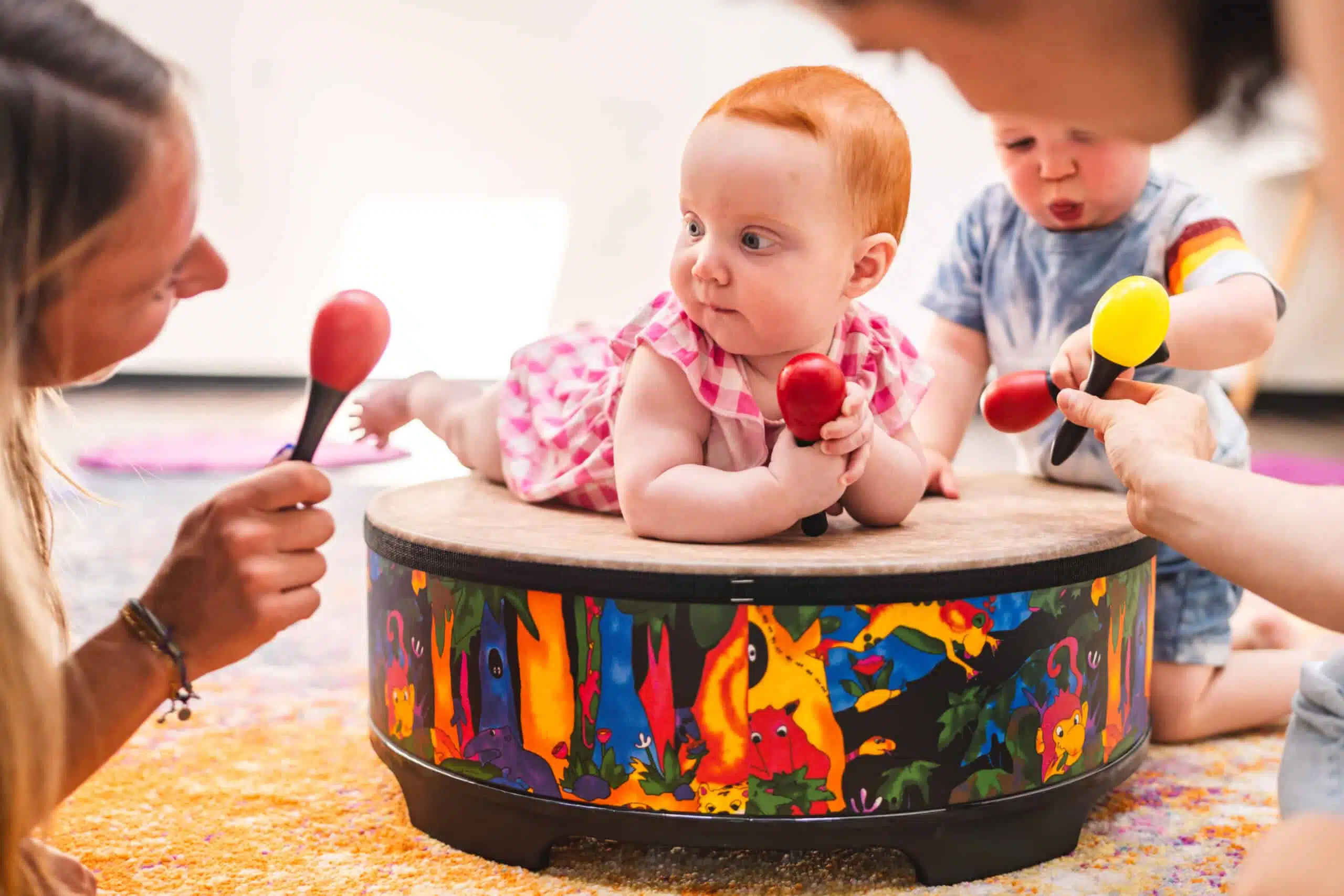Article At A Glance:
- Music and arts in early childhood education enhance cognitive development by stimulating critical thinking, creativity, and problem-solving skills.
- Exposure to artistic activities fosters emotional growth, helping children express feelings and build confidence in a safe and encouraging environment.
- Incorporating music and arts into learning supports social interaction and collaboration, promoting teamwork and communication skills among young learners.
As a parent or caregiver, you may wonder how to give your child a well-rounded start in life. One powerful way to do this is through music and art classes for preschoolers. These early experiences in creative activities contribute not only to your child’s development but also to their happiness and well-being.
Cognitive Development Through Music and Arts
Music significantly enhances brain function during childhood. Meanwhile, in preschool art classes, children use their hands to create, helping them develop fine motor skills. Both art and music provide opportunities for children to engage with the world in creative ways.
For example, drawing or painting strengthens their ability to concentrate and focus. Listening to different rhythms or exploring sound patterns builds cognitive skills like sequencing and pattern recognition.
Studies have shown that children who participate in music education develop better art and cognitive skills. These skills transfer to other areas of learning, supporting academic success. Research has also shown that children who engage with music and art at a young age perform better in reading and math.
1 ) Fostering Emotional Expression and Regulation
Music and art are powerful forms of creativity and self-expression. These activities allow children to express their emotions in a safe and supportive environment. Whether they’re painting a picture, singing a song, or playing a musical instrument, young children can process their feelings and better understand their emotions.
In preschool music class, children explore rhythm, pitch, and melody. This provides an outlet for emotional expression, which can be particularly helpful for children who have difficulty expressing their emotions verbally.
Art and music also teach children how to regulate their emotions by offering them a medium to calm down or work through frustration. Moreover, these activities promote social-emotional learning, teaching children how to understand and manage their emotions in social settings.
3) Building Social Skills and Collaboration
One of the most significant benefits of music and art in early childhood education is the development of social skills. Group activities allow children to interact with their peers and learn important skills like sharing, taking turns, and listening.
Music, in particular, teaches rhythm and coordination, both of which are important for social interactions. For example, when children play instruments together, they learn the importance of synchronizing their actions and listening to others. Art classes also promote collaboration, as children often work together on projects, learning to respect different perspectives and ideas.
4) Enhancing Language Development With Music
Music is more than just a fun activity; it is an essential tool for language development. Music encourages children to listen carefully, which enhances their ability to decode words and improve their vocabulary.
Plus, many songs use repetitive lyrics, which help children learn new terms and reinforce language patterns, developing academic skills that will help them succeed in school.
5) Promoting Cultural Awareness and Appreciation
Music and art provide a window into different cultures, broadening a child’s perspective and fostering cultural awareness. Whether children learn a traditional song from another country or explore art from different regions, they gain an appreciation for the diversity of the world around them.
In art classes in Chicago, children can create pieces that reflect various cultural traditions, allowing them to express their understanding of different lifestyles and beliefs. These experiences teach tolerance and respect while fostering an inclusive mindset that can last a lifetime.
6) Boosting Motor Skills and Coordination Through Music Class for Preschoolers
Art and music also play a crucial role in improving a child’s physical development. In art classes for preschoolers, activities like drawing, cutting, and painting strengthen hand-eye coordination and dexterity.
Meanwhile, music helps improve gross motor skills. For example, children learn to move to the beat, clap their hands, and march in rhythm. These activities develop coordination, balance, and spatial awareness.
Through multisensory engagement in art and music, young children build the motor skills they need for everyday tasks and academic achievement as they continue to grow and learn more about the world.
7) Nurturing Creativity and Imagination
One of the most important aspects of art and music in early childhood education is their ability to nurture creativity and imagination. Children are naturally curious and eager to explore the world around them. Music and art provide a space for them to experiment with different ideas, materials, and concepts.
Preschoolers can use colors, shapes, and textures to create something unique. Music, on the other hand, offers endless possibilities for exploration, from playing different instruments to creating original melodies. These experiences allow children to think creatively and develop innovative problem-solving skills.
8) Supporting Overall Well-Being Through Arts
Finally, the benefits of music and art in early childhood education extend to a child’s overall well-being. These activities provide a healthy outlet for stress, helping children relax and focus. Music and art can also boost self-confidence and reduce anxiety, creating a positive emotional environment that promotes mental health.
Moreover, engaging in music and art helps children develop resilience as they learn how to cope with challenges and setbacks. These experiences build a strong emotional foundation that supports all areas of development.
Unlock Your Child’s Creative Potential With Bubbles Academy
At Bubbles Academy, we recognize the transformative impact of art and music on young children. Our preschool music and art classes nurture creativity, self-expression, and cognitive, emotional, and social development. Through our kid’s art classes in Chicago and baby music class, we provide a supportive environment where children can thrive.
If you’re looking to equip your child with essential skills for success, Bubbles Academy is here to assist. We offer a range of programs tailored to your child’s needs. Call us today at (312) 944-7677 to discover how our preschool music class can help unlock their full potential in the Chicago area.

